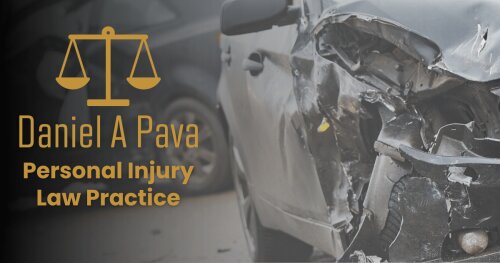Best Dangerous Product Lawyers in Springfield
Share your needs with us, get contacted by law firms.
Free. Takes 2 min.
List of the best lawyers in Springfield, United States
1. About Dangerous Product Law in Springfield, United States
Dangerous product law covers safety standards, recalls, and liability for consumer products. In Springfield, residents are protected by federal safety statutes enforced by the U.S. Consumer Product Safety Commission (CPSC). The CPSC enforces the Consumer Product Safety Act and related laws to ban or recall dangerous products and to set safety standards for consumer goods sold in the United States. Consumer Product Safety Act information is a key reference for understanding your rights when a product injures you or a loved one.
State and local aspects also matter. The Illinois Attorney General and Springfield courts enforce consumer protection laws that address deceptive marketing and unsafe products. The Illinois Consumer Fraud and Deceptive Business Practices Act is a central tool for pursuing remedies against sellers or manufacturers who misrepresent product safety. Personal injury or product liability claims may proceed in state court or federal court depending on the case posture and statutes involved. Illinois Attorney General - Consumer Protection provides guidance on these protections.
Recall notices, safety standards, and enforcement actions are published to help consumers identify unsafe products and seek remedies.This approach is primarily driven by federal agencies, with state and local authorities supporting with enforcement and education. For Springfield residents, understanding both federal rights and Illinois protections can shape whether to pursue a claim against a manufacturer, distributor, or retailer. Federal Hazardous Substances Act also informs when a product poses chemical or labeling hazards.
2. Why You May Need a Lawyer
When a dangerous product injures you in Springfield, tailored legal counsel helps you evaluate liability and pursue appropriate remedies. Below are concrete, location-specific scenarios where hiring an attorney with product liability experience is important.
Scenario 1: Your child is injured by a recalled toy sold at a Springfield retailer. A recalled toy with a small part detaches during play, causing injury to a child. An attorney can identify who bears responsibility (manufacturer, distributor, or retailer), communicate with the CPSC recall notice, and guide settlement or court action under state law.
Scenario 2: A defective car seat or stroller used by a Springfield family causes injury. If a product defect leads to injury, liability may rest with the manufacturer or retailer. An attorney can preserve evidence, coordinate with investigators, and pursue a product liability claim alongside any available workers or consumers protections.
Scenario 3: An appliance sold in a Springfield home fails during use, causing a fire or electrical shock. The claim could involve product liability and potential negligence theories, plus coordination with any applicable recalls or defect notices. A lawyer helps determine whether to pursue settlement, a jury trial, or a combination of remedies.
Scenario 4: A Springfield worker is harmed by defective industrial equipment at a local facility. Workplace injuries may involve workers’ compensation and product liability claims against the equipment’s manufacturer. An attorney can navigate overlapping remedies and preserve claims for injured workers.
Scenario 5: A dangerous chemical product sold for home use causes health issues. If labeling or packaging misrepresented hazards, that may trigger Illinois consumer protection claims alongside product liability. A lawyer can evaluate whether to pursue state consumer protection remedies or cross-claims in a civil suit.
In all scenarios, acting quickly is crucial. Early legal advice helps preserve evidence, preserve recall notices, and avoid missing statutes of limitation. For Springfield residents, a local attorney can coordinate with federal agencies and state authorities to align your claim with the right forum and remedies.
3. Local Laws Overview
The legal framework for dangerous products in Springfield relies on a mix of federal safety statutes and state level consumer protections. Here are the key authorities you should know by name.
Consumer Product Safety Act (CPSA) - The primary federal law governing product safety and recalls. It gives the CPSC authority to ban dangerous products, set safety standards, and order recalls. This statute applies nationwide, including Springfield, Illinois. Learn more.
Federal Hazardous Substances Act (FHSA) - A federal statute addressing hazards from household substances and labeling requirements. The FHSA guides how products must be labeled and marketed when they present chemical hazards. Learn more.
Illinois Consumer Fraud and Deceptive Business Practices Act - Illinois law prohibiting deceptive business practices in the sale of goods and services, including misrepresentation of product safety. The Illinois Attorney General enforces this act, and it can support claims where a product is marketed as safe or compliant when it is not. Illinois AG Consumer Protection provides guidance on pursuing these claims.
Additional context for Springfield residents: federal product safety laws operate in tandem with Illinois consumer protection statutes to address recalls, labeling, advertising, and safe design standards. When a product injures you, a lawyer can assess whether your case involves failure to warn, design defect, manufacturing defect, or misrepresentation under state law. For federal law, you may rely on CPSC recall notices and enforcement actions to support your claim.
4. Frequently Asked Questions
What is dangerous product law in simple terms?
Dangerous product law governs when consumer goods are unsafe, how recalls happen, and who can be held responsible. It combines federal safeguards with state consumer protection rules to help injured people recover damages.
How do I know if my Springfield injury is a product liability case?
Consider if the injury resulted from a defective product, improper labeling, or a failure to warn. If so, you likely have a product liability issue that a lawyer can evaluate.
When should I hire a lawyer after a product injury?
As soon as practical after the injury, ideally within days of seeking medical care. Early legal guidance helps preserve evidence and recall notices.
Where can I file a product safety complaint in Springfield?
Complaints can be filed with the U.S. Consumer Product Safety Commission and, for Illinois specifics, with the Illinois Attorney General. Local courts may handle civil actions if a claim proceeds to litigation.
Why is federal law relevant to Springfield product claims?
Federal law establishes national safety standards and recall authority that apply everywhere, including Springfield. State law can augment protection through consumer fraud and misrepresentation claims.
Can I sue a retailer as well as the manufacturer?
Yes, depending on the case. The retailer may bear liability for selling a dangerous product or for misrepresentation. A lawyer can determine all potential defendants.
Should I report the product to a government agency?
Yes. Reporting to the CPSC helps prevent others from injury and can trigger recalls. Your attorney can help coordinate reporting as part of your case strategy.
Do I need to prove negligence in a product liability case?
Not always. Many claims are based on strict liability for manufacturing defects or design defects. Your attorney will analyze the correct theory for your facts.
Do I need to hire a local Springfield attorney or can I use a distant lawyer?
A local attorney is often beneficial for court rules, deadlines, and local witnesses. However, you can hire a national firm if they have local Springfield experience.
How much does a dangerous product case typically cost to pursue?
Most product liability matters are pursued on a contingency basis. You pay attorney fees only if you recover compensation. The exact terms vary by firm.
What is the typical timeline from injury to resolution?
Litigation timelines vary widely. Some cases settle within months; others may take 1-3 years or longer depending on complexity and court schedules.
5. Additional Resources
- U.S. Consumer Product Safety Commission (CPSC) - Federal agency that enforces product safety standards, publishes recall notices, and accepts safety complaints. CPSC.gov
- Illinois Attorney General - Consumer Protection Division - State authority handling consumer protection and deceptive product practices. Illinois AG Consumer Protection
- U.S. Food and Drug Administration (FDA) - Federal regulator overseeing safety for foods, drugs, cosmetics, and certain consumer products; runs recall programs and safety alerts. FDA.gov
6. Next Steps
- Identify Springfield or nearby attorneys who specialize in product liability and dangerous products claims. Aim to compile a short list within 1 week.
- Check each candidate’s experience with Springfield courts and relevant federal actions. Schedule initial consultations within 2-3 weeks.
- Gather documentation for review. Collect injury reports, medical records, product packaging, recall notices, purchase receipts, and any exchange notes from the seller. Do this within 1-2 weeks of speaking with an attorney.
- Ask about fees and engagement terms. Confirm contingency arrangements and what expenses you may owe if the case does not settle. Complete a retainer agreement within 1-3 weeks after the consult.
- Confirm the appropriate filing strategy. Your attorney will decide between state court and federal court options and outline deadlines to avoid the statute of limitations. Expect a plan within 1-2 weeks after engagement.
- Coordinate with recall information and safety agencies. Your lawyer will help you document the recall status and any enforcement actions that support your claims. This can occur during the initial months after engagement.
- Initiate negotiations or prepare for litigation. Depending on the case, you may settle pre-trial or proceed to discovery within 3-12 months after retaining counsel.
Lawzana helps you find the best lawyers and law firms in Springfield through a curated and pre-screened list of qualified legal professionals. Our platform offers rankings and detailed profiles of attorneys and law firms, allowing you to compare based on practice areas, including Dangerous Product, experience, and client feedback.
Each profile includes a description of the firm's areas of practice, client reviews, team members and partners, year of establishment, spoken languages, office locations, contact information, social media presence, and any published articles or resources. Most firms on our platform speak English and are experienced in both local and international legal matters.
Get a quote from top-rated law firms in Springfield, United States — quickly, securely, and without unnecessary hassle.
Disclaimer:
The information provided on this page is for general informational purposes only and does not constitute legal advice. While we strive to ensure the accuracy and relevance of the content, legal information may change over time, and interpretations of the law can vary. You should always consult with a qualified legal professional for advice specific to your situation.
We disclaim all liability for actions taken or not taken based on the content of this page. If you believe any information is incorrect or outdated, please contact us, and we will review and update it where appropriate.










